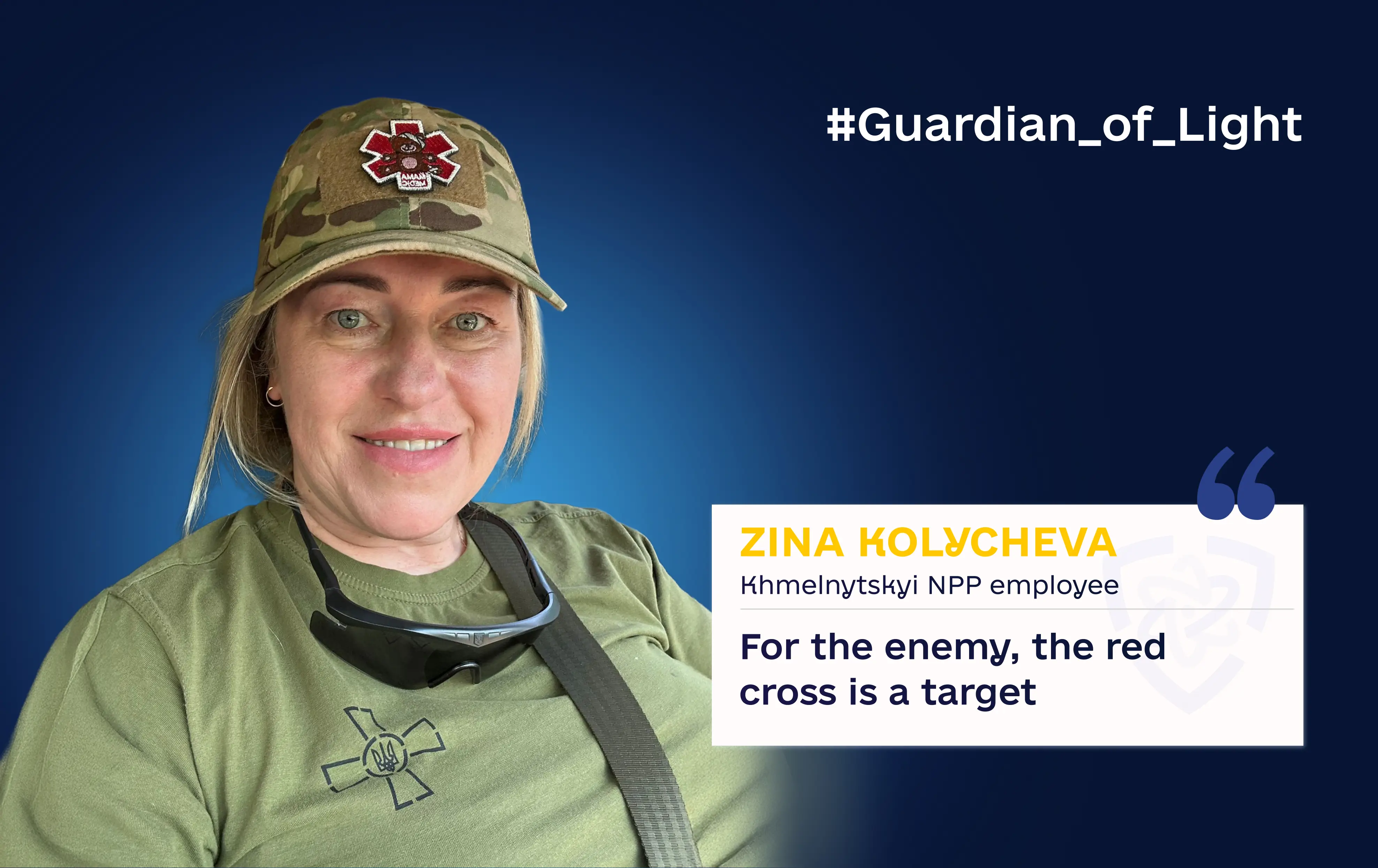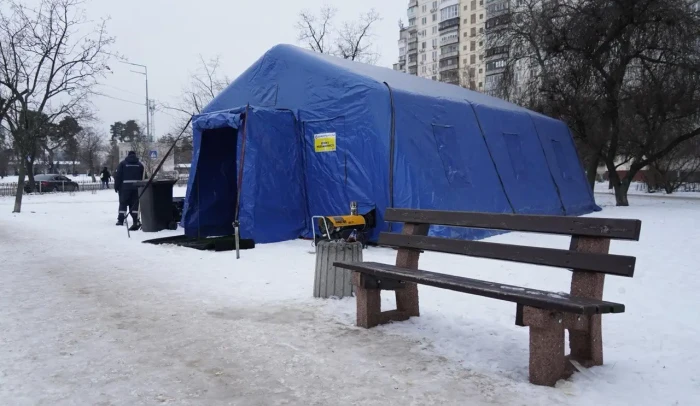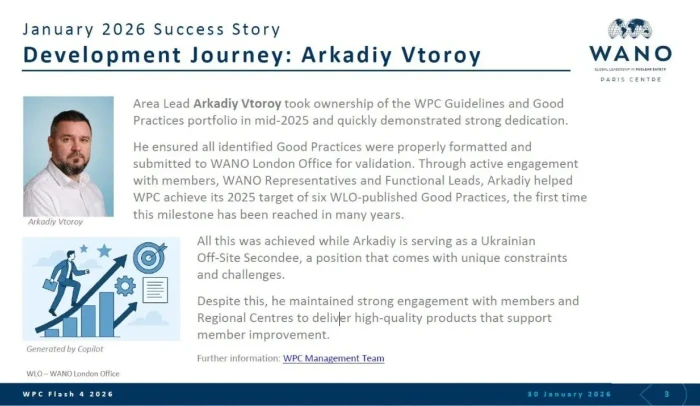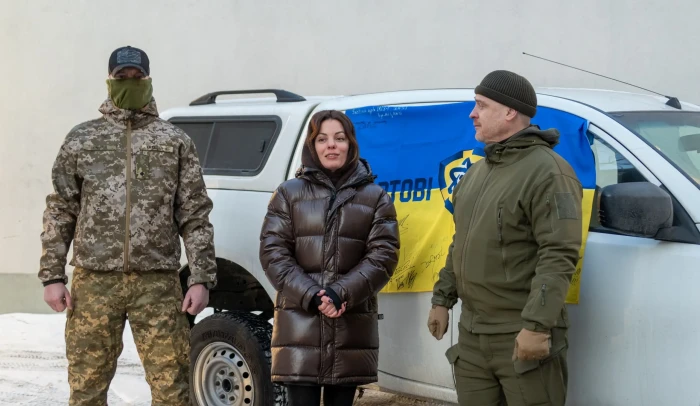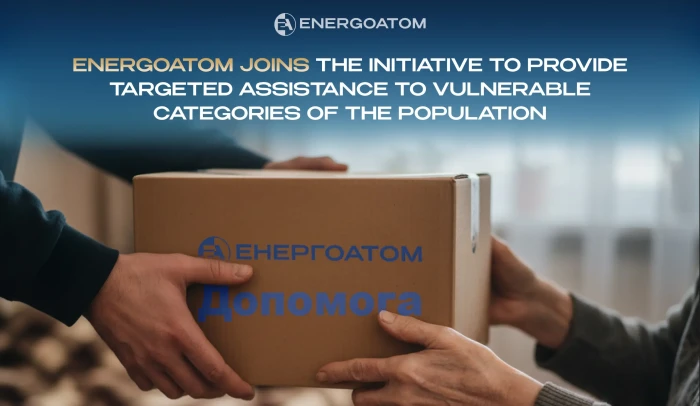Zina Kolycheva has been working at the Khmelnytskyi Nuclear Power Plant for over a quarter-century. She has always been known for her patriotic stance, and with the start of the russian-Ukrainian war, she and her colleagues actively helped Ukrainian defenders. She personally delivered aid to war-torn regions of Ukraine. However, almost a year ago, she decided that this was not enough and joined the ranks of the Armed Forces of Ukraine. A medic by training, Junior Sergeant of the medical evacuation unit Zinaida Kolycheva now saves the wounded “at the zero line.” We managed to talk to her via an online service.
Amidst the whistling of shells and the roar of drones, she carries the wounded from the battlefield. This is the story of a woman who decided that hiding was not an option.
– Zina, you have always stood out for your clear patriotic stance and active volunteer work. However, at some point, you decided that this was not enough and radically changed your life…
The war is ongoing, and we are holding on. However, we cannot survive without resources. And the most valuable resource is not technology. The most valuable thing is people: specialists who are strong and motivated.
It is time to make a decision; otherwise, we will lose what we have and those who really protect us.
Hiding is not a strategy. We must become stronger and stand firm.
That is why I am here... Patriotism keeps us here. I am very grateful to my parents for passing it on to me at the DNA level.
The decision to sign a contract with the Armed Forces of Ukraine did not come easily. It was not a simple choice. However, the time had come, and I realized that my children were grown up and capable of solving problems on their own. They are with their father, my husband, who always supports me. Therefore, I went to the Military Recruitment Center, and that is how my military career began.
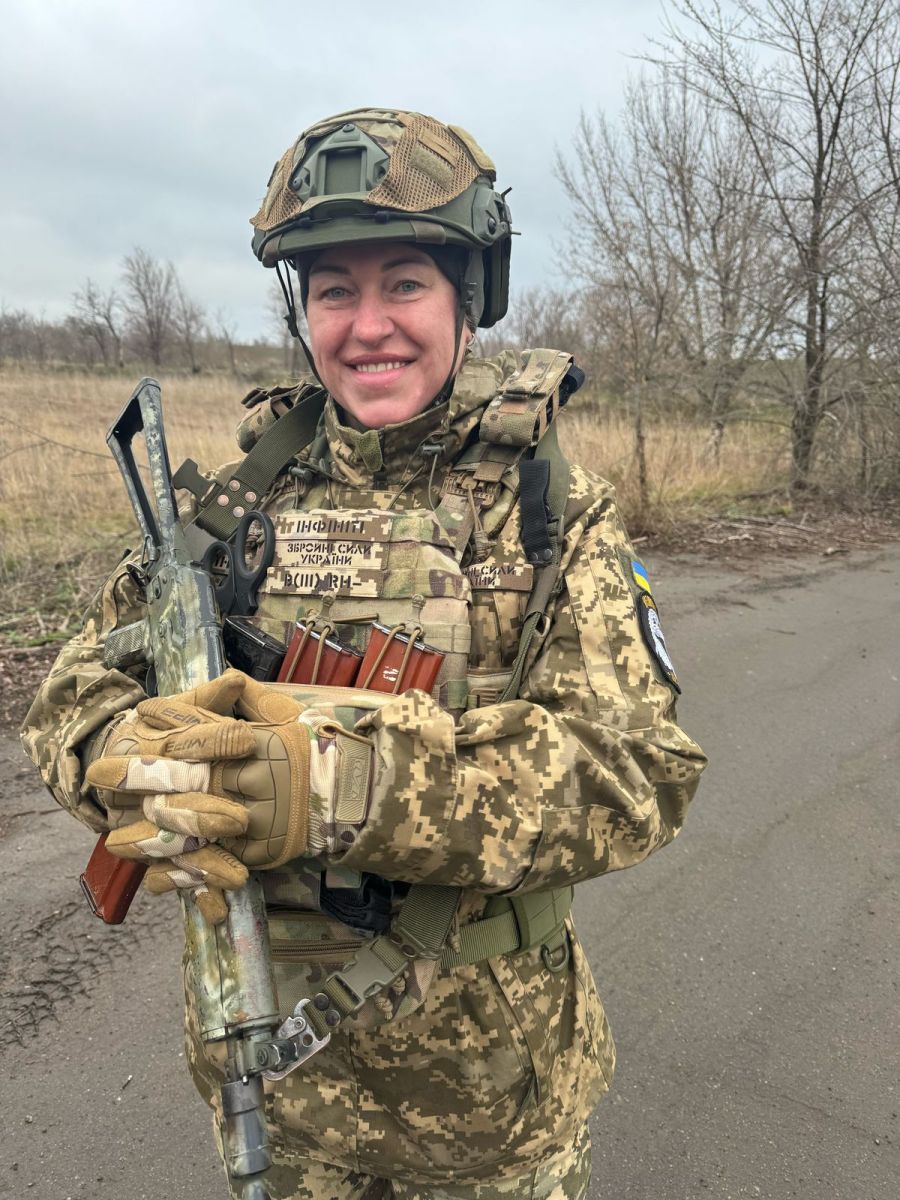
ALMOST A YEAR ON THE FRONT LINE
— How long have you been at war?
— For nearly a year. I serve as a Junior Sergeant in the Medical Evacuation Unit.
– Where exactly did you serve?
– I carry out combat missions in southern Ukraine. It is a difficult but important line – Robotyne, Nesterianka, Kopani in the Orikhiv district of Zaporizhzhia region. I think every Ukrainian knows these places, and not for good reasons.
– Do you have enough equipment and medicines on the front line? Do you feel the support of your fellow nuclear workers?
– For the most part, we have everything we need. If something is missing, volunteer organizations help us non-stop. The problems are standard: vehicles for evacuation, electronic warfare equipment, spare parts, and tires.
I am lucky to work at the KhNPP — I constantly feel the strength and support of the energy company, my colleagues, departments, and the NGO “Energy of Our Hearts”. Every reasonable request is met immediately. So, the KhNPP employees are also saving the wounded.
I would like to say that most of my colleagues, KhNPP employees, are sincerely concerned about the war and do their best to lend a helping hand and offer words of support in challenging times.
– How did you feel when you first found yourself on the front line?
– Before that, I had undergone a month and a half of basic military training. However, courses at the training ground and real war are two different things. Newbies should immediately focus and learn from the experience of professionals – this is the key to survival. I was lucky to serve with such people from the first day.
How did I feel on the front line? Honestly, I wasn't afraid, but rather anxious: what would happen next? At the zero line, you learn to live in the moment, make instant decisions, and take responsibility for yourself and the wounded. Especially when you are serving a few kilometers from the line of combat. You get used to everything — even the artillery barrage, the roar of drones, the whistling of shells. And fatigue is the best sleeping pill...
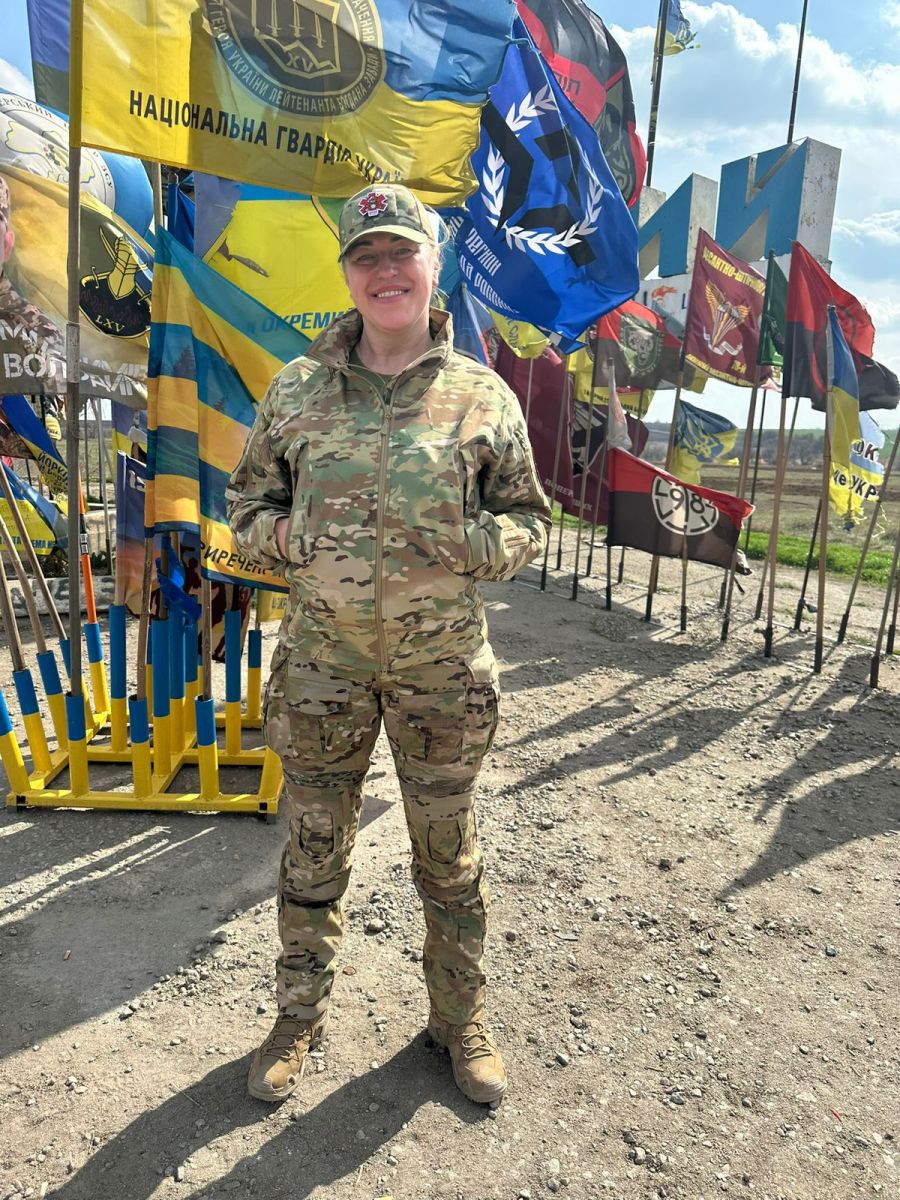
THE DAILY LIFE OF A COMBAT MEDIC
— What training is needed to work on the front lines?
— First, mental training, then physical training. The weight of the equipment can range from 20 to 40 kg, and no one cares about gender. Sometimes it is hard, but time and experience are the best teachers.
– What does a combat medic's shift at the front line look like?
– Combat medics are a special part of the medical staff because we save lives directly in the combat zone. There is almost no free time.
You can spend a day on evacuation duty, pulling out the wounded and delivering them to stabilization points. If necessary, we accompany soldiers to medical facilities. The work is varied, but very important, because sometimes, it is crucial for the survival of warriors. Urgent evacuation and rapid assistance significantly increase the chances of a quick recovery. However, depending on various conditions, evacuation can take from tens of minutes to hours, and sometimes even days.
– Have you ever had to work under fire or evacuate the wounded in extremely difficult conditions?
– Of course, that is what our job is all about – providing emergency assistance and evacuating the wounded. After all, there is no such thing as a safe place here. The enemies constantly fire and try to hit us with strike drones. They actively search for our stabilization points and want to destroy them with guided aerial bombs. I think everyone has long understood that for the russians, the red cross is a target.
– Share some stories from your life.
– Once, I promised myself that I would try to forget about evacuations, because it is not always possible to save a soldier. But when a warrior recovers after receiving help, it is the best reward for my work.
The most common combat injuries are concussions and shrapnel wounds, as well as, unfortunately, limb amputations.
One of the latest cases involved damage to both limbs (arms) due to a mine explosion. Only thanks to timely assistance, the damaged limbs managed to be saved, and the soldier is now back in action.
Two warriors who suffered severe burns were rescued recently. They are now undergoing successful treatment, followed by rehabilitation.
Nine o'clock in the morning always breaks my heart. Memories of all my combat missions and outings come to mind, when I did not make it in time and could not get to where I was really needed...
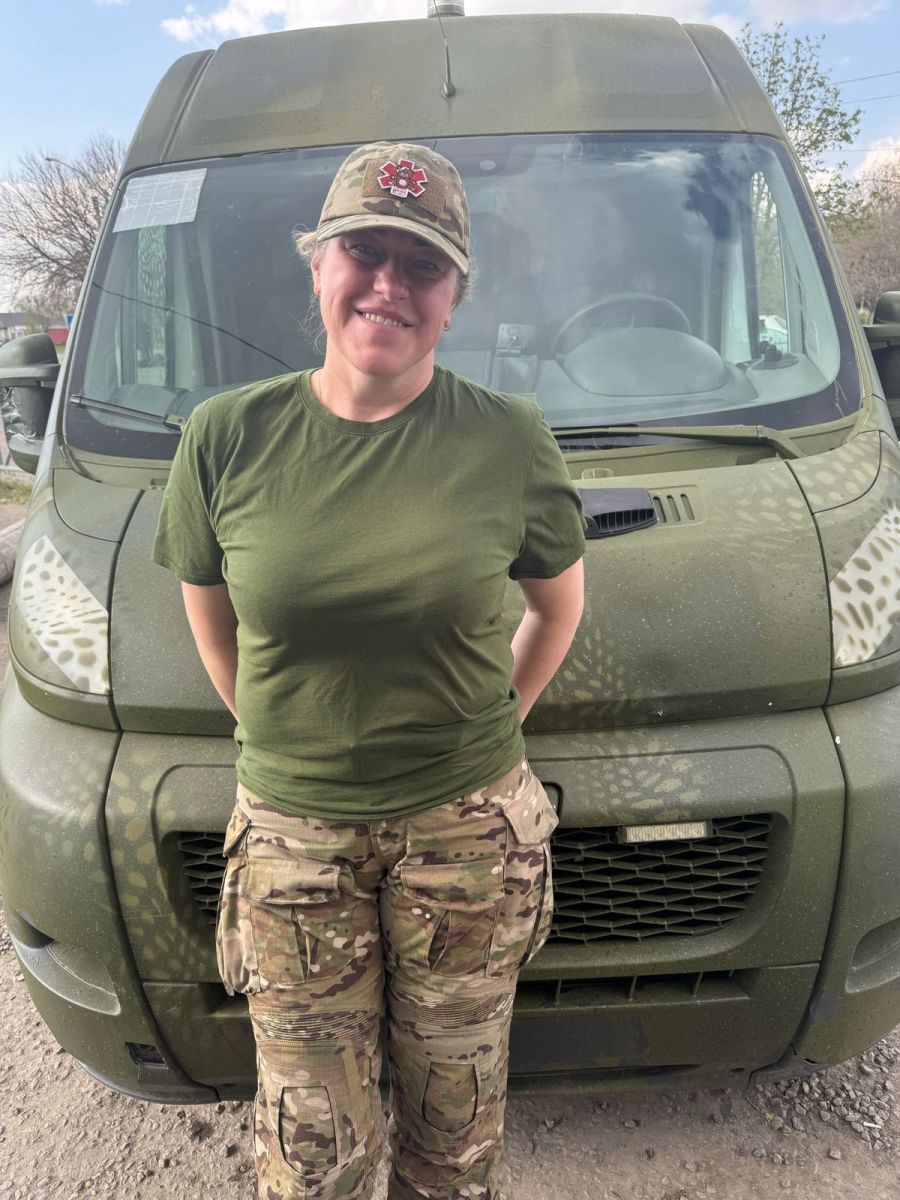
THE WORST THING ABOUT WAR IS
LOSING YOUR BROTHERS IN ARMS
– How do you cope with fear, pain, and the loss of your brothers in arms?
– First of all, I am a living person, a woman, and, of course, I experience loss very painfully, especially those I knew personally. The only thing that saves me is the support of those around me. And the understanding that you cannot give up, because that is what the enemy is waiting for.
There is always time for prayer – it helps me a lot.
– How do your male comrades in arms treat you? Have you ever had to “prove” your strength?
– For me, comradeship-in-arms is not just about the suffering and hardships of war. It is about trust, support, help, shared life, and jokes. Men who are brave on the battlefield can be very different in everyday life: someone who is quite tall bangs his head against the door frame for the third consecutive time, someone has been looking for his socks for an hour, someone tries on an anti-drone cloak and looks like Casper. This is brotherhood, and it keeps us afloat in dark days.
I now realize how lucky I am to have such comrades-in-arms. From the first day I was here, I felt great respect and understanding towards me. There were no difficult situations; I have the best team I could ever have. I am grateful to them for that.
– What is the most frightening thing you have seen or experienced in the war?
– The loss of my brothers in arms...
"I URGE UKRAINIANS NOT TO LIVE
A POSTPONED LIFE"
– What motivates you not to lay down your arms?
– I have to finish what I started. I want to see Ukraine win a peaceful and victorious sky so that my granddaughter Milana can visit her grandmother every week. I want my hometown of Netishyn to prosper.
– What should civilians understand about war? What would you like to say to Ukrainians who are currently behind the front lines?
From the first days of the war, Ukrainians made a conscious choice to fight for their land and for their children's future. This is the choice of free people. In the midst of struggle, we have learned to generate electricity, build homes, and raise children. There is no truce; the enemy shows a desire to fight.
Here, on the front lines, I understand that the threats and dangers will be with us for a long time. That is why I urge Ukrainians not to live a postponed life: love, dream, and act today... The day will surely come when the central square of Netishyn will no longer be a place of farewell with fallen heroes. Instead, we will honor them on our Victory Day.
Now, we must work to make that day come as soon as possible. We are gathering strength and patience and continuing to chip away at this rock.
Glory to Ukraine! Glory to its heroes!
Interviewed by Larysa Vlasiuk
